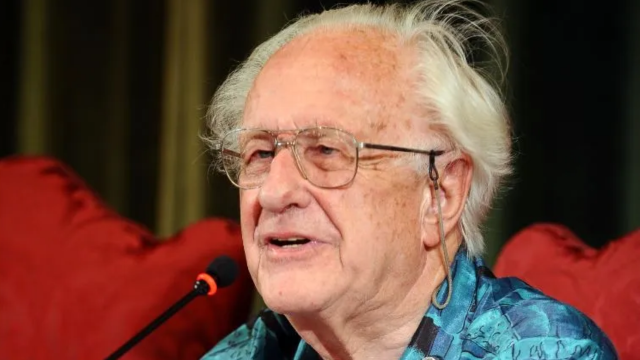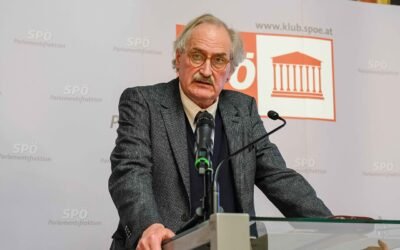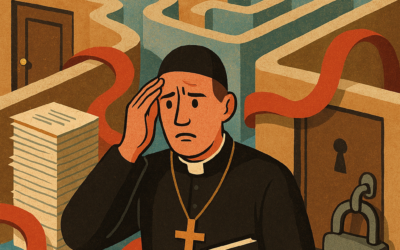Peace studies emphasize the importance of conscience, which Tai Ji Men dizi systematically promote, and justice, which they are denied.
by María Vardé*
*A paper presented at the webinar “No Peace Without Justice for Tai Ji Men,” co-organized by CESNUR and Human Rights Without Frontiers on September 21, 2025, United Nations International Day of Peace.

Every September 21st, the world observes the International Day of Peace, established by the United Nations General Assembly in 1981 as a moment for global reflection and commitment. In 2001, the UN permanently designated September 21st as a day of ceasefire and non-violence.
On this date, it is fitting to highlight the work of Tai Ji Men, a traditional menpai (similar to a school) of qigong, martial arts, and spiritual cultivation founded in Taiwan by Dr. Hong Tao-Tze. Their approach combines physical practice and inner discipline with an emphasis on conscience, love, and justice, projecting peace as a process that begins within each person and extends to the community and the world.
The pursuit of body-mind-heart harmony becomes evident in Tai Ji Men’s notion of “kung fu of the heart”: a discipline of attention and ethical refinement that seeks to unify heart and qi (energy) to moderate anger, cultivate clarity, and make harmonious coexistence possible. This approach aligns with what Johan Galtung (1930–2024), pioneer of peace studies, called “positive peace”: not merely the absence of violence, but the active presence of justice, harmony, and conditions for human flourishing. For Tai Ji Men, peace begins within, is trained and practiced in the family, and becomes public in the community.
In Tai Ji Men, this bridge between interiority and public life becomes visible on three levels: physical and spiritual formation (qigong as emotional hygiene and discipline), cultural expressions (music, dance, ceremonies), and symbolic civic action, including interreligious dialogues and international campaigns. None of this replaces political negotiations, but it contributes to an ecology of practices that makes sustained peace more likely to occur. An emblematic example is the Bell of World Peace and Love, rung by social and political leaders in various countries as a public gesture of commitment to peace.
Despite their peaceful nature and advocacy for community well-being, Tai Ji Men faced serious accusations and affronts from state officials in the context of political persecution. In 1996, Dr. Hong and several dizi (disciples) were detained and violently interrogated under threats and mistreatment based on false criminal and tax accusations initiated by Prosecutor Hou Kuan-Jen. Defamation campaigns were deployed in the media, and many dizi were discriminated against, fired from their jobs, and marginalized by their families and friends.

After a lengthy legal dispute, Taiwan’s Supreme Court definitively acquitted Tai Ji Men defendants in 2007. There had never been fraud or tax evasion, and the disciples’ gifts to the master were recognized as non-taxable. Despite this, tax claims persisted years later, and in 2020, the state confiscated sacred land intended for a spiritual cultivation center, originating from a controversial 1992 tax assessment.
However, despite constant physical and psychological attacks from a predatory bureaucracy, Tai Ji Men always chose the path of peace, maintaining a positive and creative agenda. The movement and its supporters have actively participated in spaces linked to the UN Human Rights Council and numerous international forums, where they denounced the abuses suffered in Taiwan and connected Tai Ji Men’s experience to the need to defend freedom of conscience globally. Dizi have also conducted peaceful public demonstrations to advance its cause.
But it wasn’t all denunciation: during these same years, Tai Ji Men continued promoting cultural festivals, interreligious encounters, and educational programs where adults, children, and young people learned the values of harmony, cooperation, and mutual respect.
Comparative anthropology has clearly shown that peace becomes sustainable and effective when societies establish mechanisms of reciprocity, dialogue, and understanding to process their conflicts. It’s not just about avoiding open confrontations but building trust in fair treatment and a sense of shared community. These conditions are essential for abolishing multiple forms of violence and ultimately reveal that justice is the indispensable foundation of all lasting peace: without justice, there is no absence of violence, and without the absence of violence, there can be no true peace.
This understanding aligns with contemporary peace research, which emphasizes that sustainable conflict resolution requires not only formal agreements but also the cultivation of a “culture of peace”—defined by UNESCO as values, attitudes, and behaviors that favor dialogue and cooperation over violence.

The Tai Ji Men case illustrates how spiritual communities can act as living laboratories of peace-building practices, maintaining constructive engagement even when confronted with institutional hostility. While subjected to discrimination and arbitrary confiscations, Tai Ji Men dizi dedicated themselves to sowing awareness and peace, maintaining coherence between their spiritual convictions and public actions. The contrast is eloquent: where justice failed and broke civic trust, the movement responded with nonviolent discipline, reminding us that peace is not passivity or resignation, but ethical constructivism and action.
Nearly thirty years have passed since the attacks on Tai Ji Men began. During the three decades, Taiwan sought to consolidate itself as a democratic state open to the liberal world and international dialogue. On the global stage, it advocates for peace among peoples and constructive cooperation. To achieve true harmony and direct all its energy toward the future, Taiwan would do well to heed Tai Ji Men’s teachings and resolve the pending injustices. After all, lasting peace is only possible if it is first cultivated at home, if it goes from the inside out.

Maria Vardé graduated in Anthropological Sciences at the University of Buenos Aires and is currently a researcher at the Instituto de Ciencias Antropológicas, Facultad de Filosofía y Letras, Universidad de Buenos Aires (Institute of Anthropological Sciences, Faculty of Philosophy and Humanities, University of Buenos Aires). She has written and lectured on archeology, spirituality, and freedom of religion or belief.



